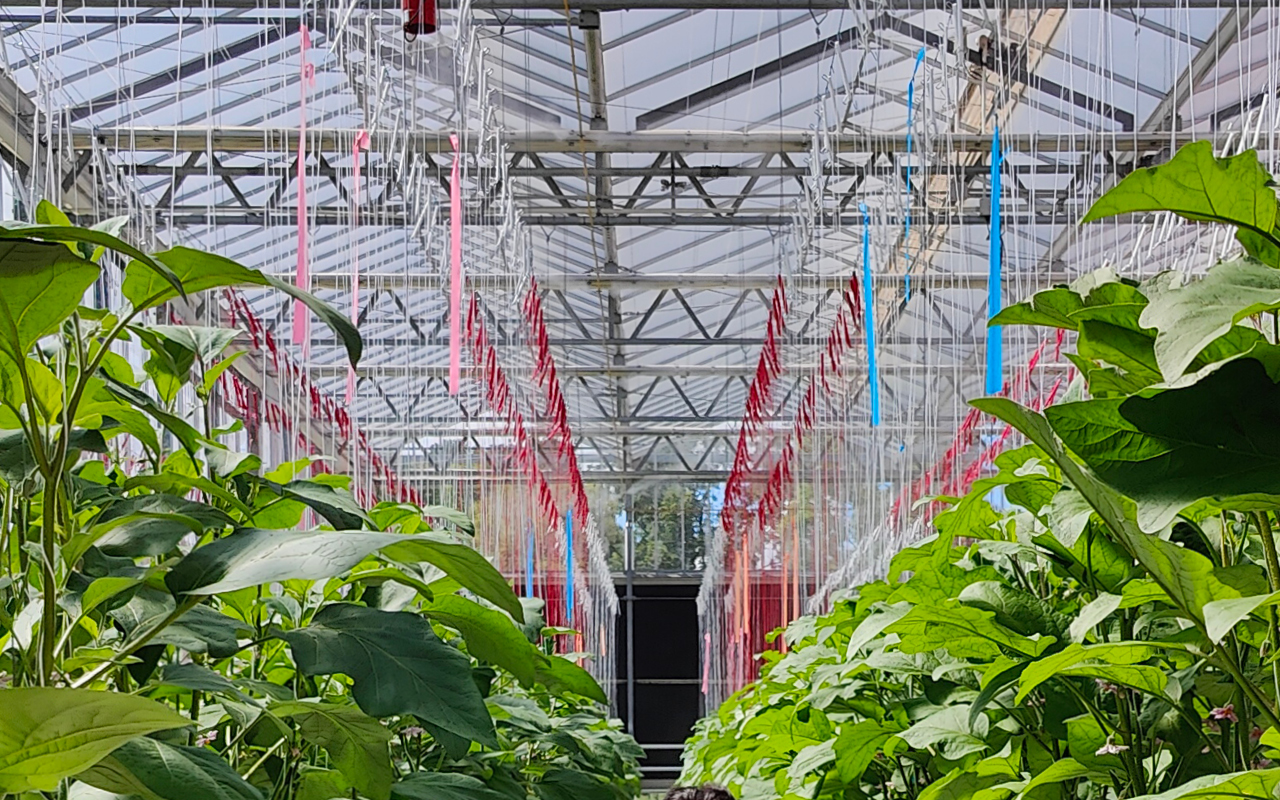Challenge Greenhouse-grown crops depend heavily on light quality and intensity for optimal growth, but excess light can lead to photodamage. Light-Altering Films (LAFs) offer a promising solution by selectively filtering light, transmitting most photosynthetically active radiation (PAR) while reducing heat and damaging wavelengths. However, there is limited understanding of how LAF-modulated light spectra affect carotenoid biosynthesis, non-photochemical quenching (NPQ), and photoprotection mechanisms, and how these factors ultimately influence crop yield.
Solution This project explores how modifying light spectra with LAFs impacts carotenoid-mediated photoprotection, particularly through NPQ, which safely dissipates excess light energy as heat. By investigating changes in carotenoid profiles and NPQ activity under altered light conditions, the research aims to determine how different spectral compositions affect photosynthetic efficiency and stress tolerance. The study will assess variety-specific responses to LAFs, focusing on their influence on yield, photoreceptor activity, and xanthophyll cycle dynamics.
Impact The outcomes will generate new knowledge on the biochemical and physiological responses of crops to modified light environments, enabling tailored LAF applications for specific crop varieties. This could improve crop performance, energy efficiency, and resilience in controlled environments, supporting more sustainable and productive protected cropping systems.








